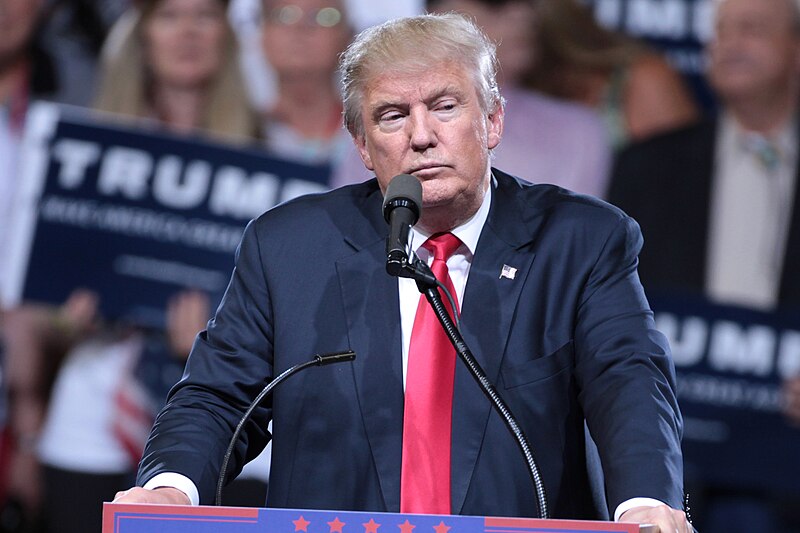
Donald Trump, the leading contender for the Republican presidential nomination, will host a rally outside Miami with the goal of appealing to Hispanic voters, who are considered crucial for
victory in the 2024 elections. Meanwhile, his Republican rivals gather for another debate without his participation.
The rally, taking place in Hialeah, a stronghold of Cuban Americans, aims to bolster Trump's support among Hispanic voters in Florida, according to campaign spokesperson Steven Cheung. Trump's popularity among Hispanics, the fastest-growing ethnic and racial group in the U.S. electorate, increased during his 2020 campaign.
The choice of locations for both events, with the debate taking place half an hour away in Miami-Dade County, highlights the potential significance of the Hispanic demographic, which has become increasingly disenchanted with left-leaning cultural and economic policies.
"We gained a substantial number of voters, and they continue to lean in our direction," noted Christian Ziegler, chairman of the Republican Party of Florida, in reference to the 2020 and 2022 elections. "That's why you see both the debate and the rally being held in that area."
Miami-Dade County is Florida's most populous, home to 1.5 million eligible Latino voters. In 2016, Democrat Hillary Clinton won the county over Trump by nearly 30 percentage points. However, Trump narrowed that gap to just 7 percentage points when he ran against Democrat Joe Biden in 2020.
During the 2022 re-election campaign for governor, Ron DeSantis secured an outright victory in the county and obtained 65% of the Hispanic vote, signaling a significant shift toward the Republicans in just six years.
Now, Trump is relying on Hispanic voters to help him surpass DeSantis, who currently lags behind in the Republican nomination race. Simultaneously, Trump is seeking to secure their support for a probable rematch against Biden in the November 2024 general election.
This is part of a broader strategy by Trump to expand his base, which was initially built on white, rural voters. Apart from the Republican Party's progress with the Hispanic community, recent opinion polls from The New York Times and Siena College indicate that 22% of Black voters in six closely contested states support Trump, a level unprecedented for a Republican presidential candidate in modern history.
Democrats have expressed concerns about their diminishing advantage with Latino voters since the 2020 election when Trump garnered a larger share of the Hispanic vote (32%) than any Republican since President George W. Bush almost two decades ago.
Republican outreach efforts have included substantial investments in community outreach programs in Florida, with an emphasis on addressing issues important to Hispanic voters. For example, a program expanding access to school vouchers was signed into law by DeSantis earlier this year.
A Reuters/Ipsos poll conducted in September showed that 38% of Hispanic respondents would vote for Biden, while 36% chose Trump. This shift appears to be a cause for concern for Biden, who defeated Trump by approximately 20 points among Hispanic voters in 2020, according to Pew Research's analysis of exit poll data.
The Biden campaign is not idly observing these developments. It views Hispanic, Black, and young voters as critical to its chances in the 2024 election and has begun increasing spending on Spanish-language advertisements and implementing other measures targeting swing states.
However, campaign advisers are well aware that Florida, once a battleground state, is now solidly Republican, making it a challenging prospect for Biden to capture, regardless of his performance with Hispanic voters.
Trump's ongoing legal issues seem to be enhancing his standing with Hispanic voters, many of whom fled repressive regimes and sympathize with Trump's unfounded claims that he is facing prosecution for political reasons, likening it to political persecution in countries like Venezuela and Nicaragua. Fabio Andrade, a Colombian-American businessman involved in organizing Hispanic voters, remarked, "It's a political persecution just like Venezuela and Nicaragua. No different." Photo by Gage Skidmore from Peoria, AZ, United States of America, Wikimedia commons.






































